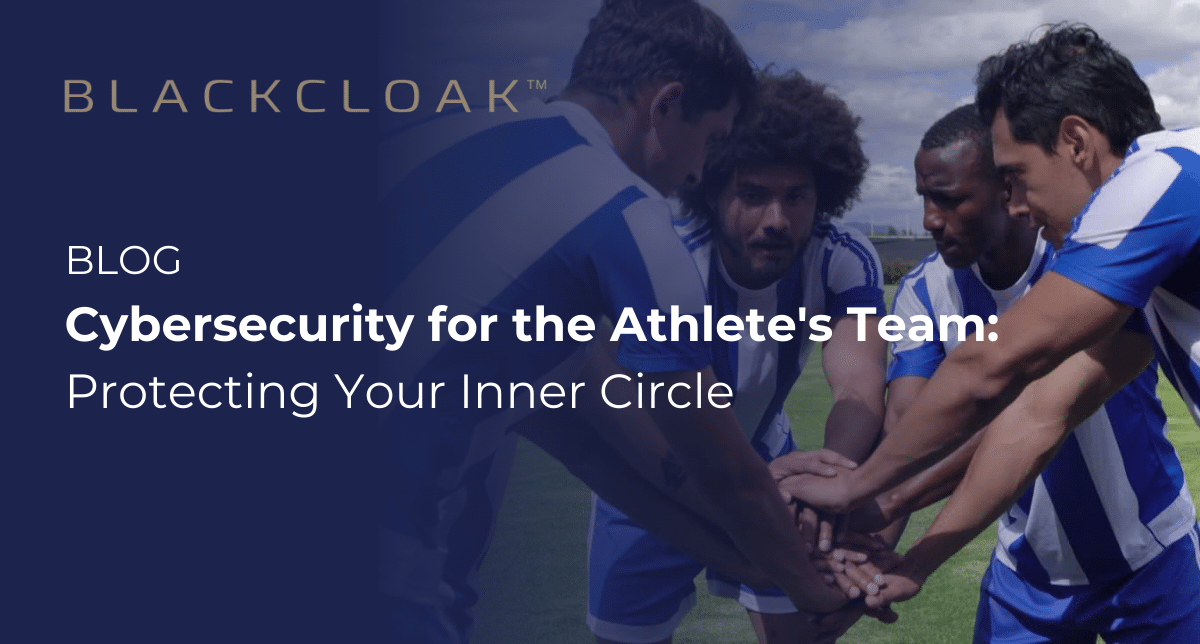Cybersecurity for the Athlete's Team: Protecting Your Inner Circle

Professional athletes, due to their high visibility and wealth, are increasingly becoming targets for cybercrime. A study by the cybersecurity firm Symantec revealed that high-profile individuals, including athletes, are 12x more likely to be the target of cyberattacks compared to other individuals. We know concrete strategies and have experienced real-world examples that inform our approach to protecting athletes and their teams by fortifying their cybersecurity defenses.
Cyber threats can have devastating impacts. For instance, in 2017, the FC Barcelona Twitter account fell victim to a hack that falsely announced the signing of a player, leading to confusion and reputational damage. This incident underscores the range of cyber threats, from social media hacks and phishing to more complex attacks like ransomware.
Education is pivotal in cybersecurity. For example, the NFL Players Association has initiated cybersecurity awareness programs for its athletes, focusing on the importance of recognizing phishing emails and safe social media practices. Implementing similar regular training sessions for athletes and their teams can significantly reduce vulnerability to cyber threats.
Implement Strong Password Policies
Strong passwords are a fundamental defense against hacking. A Verizon Data Breach Investigations Report found that 81% of hacking-related breaches leveraged either stolen or weak passwords. Encouraging the use of complex passwords and regular changes, perhaps assisted by a password manager, is a simple yet effective strategy.
Two-Factor Authentication (2FA)
2FA is increasingly recognized as a critical security measure. For example, a high-profile NBA player was saved from a significant financial loss when an attempted wire transfer was thwarted due to 2FA on his bank account. Encouraging the adoption of 2FA across all sensitive accounts is essential.
Regular Security Audits
Performing regular security audits is crucial. A 2019 report by the security firm Redscan found that sports teams are often ill-prepared for cyberattacks, with inadequate security measures in place. Regular audits can help identify and address these gaps.
Secure Communications
The use of encrypted messaging apps and email services for sensitive conversations is vital. For instance, the 2018 case where sensitive contract negotiations of a premier league footballer were leaked, supposedly through unsecured email communications, highlights the importance of secure channels.
Control Access to Sensitive Information
Limiting access to sensitive data is key. Implementing strict access controls, as seen in professional sports teams where medical records and contract details are only accessible to authorized personnel, can prevent unauthorized information leaks.
Have an Incident Response Plan
A well-structured incident response plan is crucial. When the Milwaukee Bucks’ financial data was leaked in 2016 due to a phishing scam, a swift response could have mitigated the impact. This plan should detail steps for managing a breach and effectively communicating with media and stakeholders.
Cyber threats are ever-evolving, athletes and their teams must be proactive in their cybersecurity measures. By implementing these strategies the risk of cyber threats can be significantly reduced, ensuring the integrity and reputation of both the athletes and their teams remain intact. Remember, in sports, a strong defense is not just a strategy on the field but also in our digital lives.







